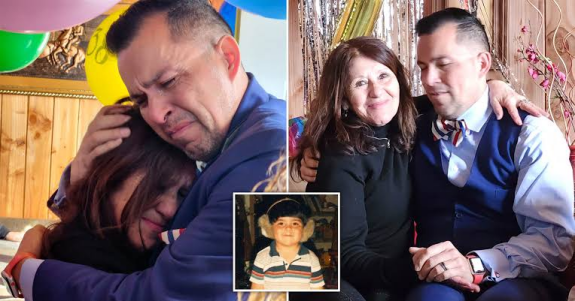
Chilean-American Jimmy Lippert Thyden González Sues Chile Over Baby Thefts During Pinochet Era
Fiona Nanna, ForeMedia News
4 minutes read. Updated 3:00PM GMT Fri, 5 July, 2024
A Chilean-American, raised in the United States, has filed a significant criminal complaint against the Chilean government. Jimmy Lippert Thyden González, 43, alleges a systematic plan by the Chilean state to steal thousands of babies from perceived political enemies during the 1970s and 1980s. This legal action, filed on Monday, aims to support the ongoing efforts of Chilean prosecutors and human rights groups seeking accountability for crimes committed under the dictatorship of General Augusto Pinochet.
On September 11, 1973, General Pinochet led a coup to overthrow Marxist President Salvador Allende. This ushered in a period of brutal repression that lasted until 1990, during which at least 3,095 people were killed, and tens of thousands more were imprisoned and tortured for political reasons.
Thyden González, who learned of his origins just over a year ago, filed his lawsuit in Santiago, Chile’s capital. This comes at a crucial time, as a new judge has assumed control over judicial investigations into the dictatorship’s child-trafficking operations. This move aligns with the efforts of President Gabriel Boric’s left-wing government to enhance Chile’s accountability measures.
“First and foremost, we start with acknowledgment by the government that this has happened. Acknowledgment that there was a wrong,” Thyden González, a lawyer and former Marine raised in Virginia, told The Associated Press in Santiago. “From there, we can build on what reparations look like.”
Last year, with the help of Nos Buscamos, a Chilean nonprofit dedicated to reuniting families separated by coerced adoptions, Thyden González tracked down and embraced his birth mother, Maria Angelica González. She last saw her newborn son being taken away in a Santiago hospital ward. Medics had informed her that her premature son had died shortly after delivery and that they had buried him while she was still recovering. In reality, baby Thyden was given up for adoption to a family in the United States — part of a pattern of illegal overseas adoptions that existed before Pinochet’s regime but escalated during his 17 years in power.
Reports from the Chilean judiciary obtained by the Associated Press reveal that approximately 20,000 cases of coerced or criminal adoptions occurred overall. Civil society organizations like Nos Buscamos estimate that over 50,000 Chilean families have been affected.
Chile only began judicial investigations into this chilling practice in 2017. Since then, the government has created a DNA database to help adoptees and biological families reconnect. Despite this, no one has been charged concerning these abductions. Human rights groups have criticized the government for its sluggish and inadequate investigations.
Currently, the Justice Ministry indicates that around 1,200 cases of coerced adoptions, mainly involving Chilean babies adopted in the United States and Sweden, are progressing through the Santiago appeals court. Recently, Chile’s president met with Swedish Prime Minister Ulf Kristersson in Stockholm to sign a cooperation agreement aimed at “advancing information sharing” about these coerced adoptions.
Thyden González’s lawsuit represents a significant attempt to seek justice. Unlike previous complaints focused on individual adoptees’ experiences, González’s case aims to address the broader issue of systematic state-sponsored abductions over several decades.
“Apart from individual responsibilities, we are interested in determining the responsibility of the Chilean state,” stated Ciro Colombara, a human rights lawyer who filed Thyden González’s complaint. “This will be a discussion in local courts, national courts, and eventually international human rights courts.”
Key Points:
- Historical Context: Pinochet’s dictatorship and its human rights abuses
- Legal Action: Jimmy Lippert Thyden González’s lawsuit against the Chilean government
- Family Reunions: Efforts of Nos Buscamos in reuniting families
- International Cooperation: Chile-Sweden agreement on information sharing
- Accountability: The broader implications of holding the Chilean state responsible
Related Articles:

